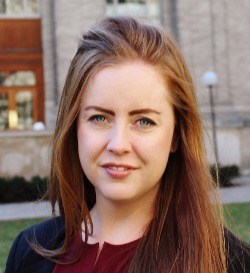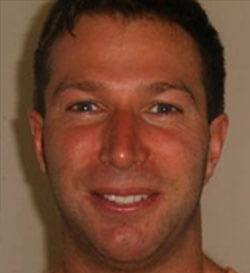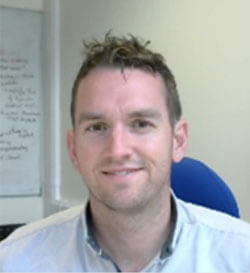-
Courses

Courses
Choosing a course is one of the most important decisions you'll ever make! View our courses and see what our students and lecturers have to say about the courses you are interested in at the links below.
-
University Life

University Life
Each year more than 4,000 choose University of Galway as their University of choice. Find out what life at University of Galway is all about here.
-
About University of Galway

About University of Galway
Since 1845, University of Galway has been sharing the highest quality teaching and research with Ireland and the world. Find out what makes our University so special – from our distinguished history to the latest news and campus developments.
-
Colleges & Schools

Colleges & Schools
University of Galway has earned international recognition as a research-led university with a commitment to top quality teaching across a range of key areas of expertise.
-
Research & Innovation

Research & Innovation
University of Galway’s vibrant research community take on some of the most pressing challenges of our times.
-
Business & Industry

Guiding Breakthrough Research at University of Galway
We explore and facilitate commercial opportunities for the research community at University of Galway, as well as facilitating industry partnership.
-
Alumni & Friends

Alumni & Friends
There are 128,000 University of Galway alumni worldwide. Stay connected to your alumni community! Join our social networks and update your details online.
-
Community Engagement

Community Engagement
At University of Galway, we believe that the best learning takes place when you apply what you learn in a real world context. That's why many of our courses include work placements or community projects.
Principal Investigators
Professor Mark Bruzzi is a Professor in Biomedical Engineering at the National University of Ireland Galway and is also the Director and co-founder of the BioInnovate Ireland medical device innovation programme. BioInnovate Ireland is a multidisciplinary programme focusing on medical device product development from clinical needs identification, market validation, prototype development and business planning. Mark also is supporting the development of a number of innovative medical technologies He has over 50 journal and conference publications, seven patent applications, 3 licensed technologies and serves as an advisor to several medical device start-ups.
Using state-of-the-art computational and experimental techniques, Dr. Conway explores medical device performance and provides insight into clinical adverse events following treatment. Her work is at the intersection of regulatory, academic and industrial interests, focusing on research at the interface of engineering and medicine.
Dr. Conway seeks to understand role of disease structure in relation to atherosclerosis and valvular calcification. These conditions are often treated with structural implants, such as stents or prosthetic valves, and these interventions can benefit greatly from mechanics-based engineering insights. Using finite element simulations, she works to predict patient response to structural implants, paying particular attention to disease representation and the role of calcification in device failure. By designing sophisticated bench-top mechanical test-rigs, she determines structural implant performance, validates computational predictions, and further advances our understanding of device performance with more realistic physiological boundary condition assessment for engineering analyses.
Dr. Patrick McGarry is a lecturer in Biomedical Engineering and the Program Director for the Undergraduate Degree in Biomedical Engineering at NUI Galway. Dr. McGarry’s research group has developed an internationally leading reputation in the field of Biomechanics, and in particular computational cell mechanics. Dr McGarry has to date supervised 11 PhD students to completion. He was the primary supervisor of six simultaneous successful PhD completions in October 2012. This achievement is an official record for NUIG. All six students completed in exactly four years (October 2008-October 2012), graduating in March 2013. His PhD students have been awarded numerous international honours and awards (ASME, Engineers Ireland, World Congress of Biomechanics). Dr. McGarry is PI on three major Science Foundation Ireland research grants for Cell Contractility Modelling. His research group has published over 53 papers in leading journals in the field, and presented over 70 research papers at leading international conferences in the field. Dr. McGarry has developed strong collaborations with leading international research groups, including: University of Cambridge; University of California, Santa Barbara; Georgia Institute of Technology; and Rice University.
- Publications
- BMERM
Professor Peter McHugh is Professor of Biomedical Engineering at NUI Galway. He holds a BE in Mechanical Engineering from UCG (1987), and an MSc (1990) and PhD (1992) in Mechanics of Solids from Brown University, Providence, USA. He joined NUI Galway in 1991, where he is currently the Established Professor of Biomedical Engineering and Dean of the College of Engineering and Informatics. He is Director of the Biomechanics Research Centre (BMEC). He has a significant publication record, with 137 refereed journal publications, 10 book chapters and over 300 conference publications. He has supervised to completion 24 PhD and 23 research masters students. He has generated over €11m in research funding from national, EU and industry sources, and has active research collaborations with international leaders in the field, spanning Europe and the USA. He has received numerous awards, including membership of the Royal Irish Academy, Ireland’s national academy for the sciences and humanities (2011), the Silver Medal of the Royal Academy of Medicine in Ireland (Section of Bioengineering) in 2011, the Presidential Nominee Fellowship of Engineers Ireland in (2009), and the Alexander von Humboldt Fellowship (1995). He currently holds the position of Secretary for Policy and International Relations of the Royal Irish Academy.
Professor Laoise McNamara is a Professor in Biomedical Engineering at the National University of Ireland Galway and the Program Director for the Masters in Biomedical Engineering (MSc). She holds a PhD in Biomedical Engineering from Trinity College Dublin and a 1st class Honours degree in Mechanical Engineering from NUI Galway. She completed Postdoctoral training at Mount Sinai School of Medicine, New York, USA. From 2007-2009 she was a Lecturer in Mechanobiology and Musculoskeletal Biomechanics at the University of Southampton, United Kingdom. She was appointed to NUI Galway in 2009 as a Science Foundation Stokes Lecturer in Biomedical Engineering. She established the Mechanobiology and Medical Device Research group (MMDRG, www.mechanobiology.ie) at NUI Galway. Her research has been widely published and cited, and has attracted significant research funding (€3,620,285), most notably the ERC Starting Independent Researcher Award (€1,499,910) in 2011 and a Science Foundation Ireland Investigators Grant (€883,257). She has interdisciplinary research collaborations with researchers at Georgia Tech, Notre Dame University, City College of New York, Worcester Polytechnic Institute, Tampere University of Technology, INSERM Nantes and the University of Southampton. She collaborates with Stryker, Boston Scientific and Medtronic.
Biomedical Engineering
Dr. Will Ronan is a Lecturer in Biomedical Engineering. He completed his Ph.D. in Mechanical Engineering at NUI Galway (graduating in 2013 and funded by the Irish Research Council for Science, Engineering and Technology Embark Scholarship) on the mechanics of cells. This research primarily focused on development and implementation of constitutive material models and adhesion models using the finite element method. During this time, he spent one year as a visiting scholar in the University of California, Santa Barbara. In 2013, he was awarded a Science Foundation Ireland Short-Term Travel Fellowship which he used to visit the University of Cambridge. This research collaboration expanded on his previous doctoral work to examine the kinetics and mechanics of cell adhesion. In 2014, he began a post-doctoral research project at the Cambridge Centre for Micromechanics on the tensile ductility and toughness of lattice materials & polymer foams. He returned to NUI Galway in 2016, originally as a faculty member in Mechanical Engineering, before moving to his current role in Biomedical Engineering.
Dr. Ted Vaughan is a Lecturer in Biomedical Engineering. His research focusses on development of multiscale modelling techniques to address problems in biomechanics, mechanobiology, medical device design and composite materials. He graduated with a First Class Honours Degree in Mechanical Engineering from the University of Limerick in 2007. He was awarded a PhD in Mechanical Engineering in 2011, also from the University of Limerick, for research in the area of computational micromechanics of composite materials. Between 2011-2015, he held a position as a postdoctoral researcher in the Centre for Biomechanics Research (BMEC) here at NUI Galway. During this time, he also held a position as a Visiting Postdoctoral Scholar at the University of Notre Dame, funded through a Postdoctoral Mobility Grant awarded by the Royal Irish Academy. To date, Dr. Vaughan has published approximately thirty peer-reviewed journal articles in internationally-respected journals in the fields of multiscale modelling, computational biomechanics and medical device design. One of these articles is listed as one of the Top-10 most cited articles published in Composites Science and Technology over the past five-years (currently the leading journal in the field of composite materials). He actively collaborates with a range of Industry partners, including Proxy Biomedical, Meotec Gmbh, Boston Scientific and Stryker.








 Professor Mark Bruzzi
Professor Mark Bruzzi Dr. Claire Conway
Dr. Claire Conway Dr. Patrick McGarry
Dr. Patrick McGarry Professor Peter McHugh
Professor Peter McHugh Professor Laoise McNamara
Professor Laoise McNamara
 Dr. William Ronan
Dr. William Ronan Dr. Ted Vaughan
Dr. Ted Vaughan






